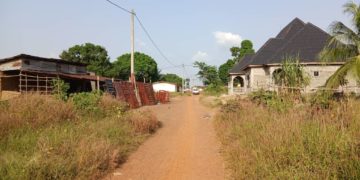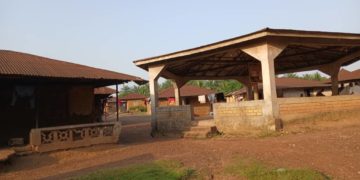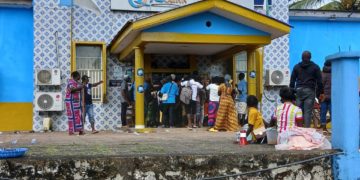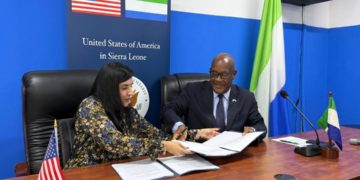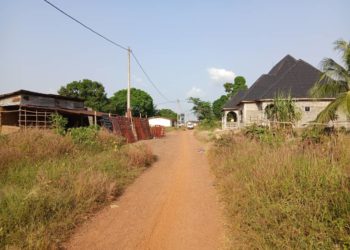First published by The East African
By Kemo Cham
Importers of cocoa into Europe are flouting European Union laws by selling beans from deforested African land while mislabelling its origins.
A new report lists cocoa merchants as fuelling the felling of trees in Liberia while disguising the beans as originating from neighbouring Cote d’Ivoire. Liberia, one of the countries in Africa still recovering from civil war, has struggled to replant trees, most of them cut down during the conflict two decades ago.
And, while agribusiness has been encouraged to tackle both poverty and land rehabilitation, cutting down trees for cocoa farming violates EU laws on environment and business.
Of late, the EU has been putting clauses in various trading agreements to focus on conservation for all businesses directly engaging with the European markets.
Read: China tea drinkers embrace African coffee, thanks to millenials
Yet the report by an Ivorian NGO known by its French acronym IDEF is calling on EU officials and governments of affected African nations to work on cocoa certification schemes that prevent illegal exploitation of African farmers, one of the largest bloc of cocoa producers in the world.
IDEF, in the paper released at a major event in Brussels on April 22, said that companies involved in the illegal acts in Cote d’Ívoire are promoting destruction of forests in Liberia, and called on the EU to take appropriate action to stop the malpractices.
IEDF says that the traceability mechanisms used by these companies are flawed and do not comply with the new anti-deforestation regulations of the EU published on June 9, 2023.
The group calls for the existing mechanisms to be replaced with robust and transparent national traceability system in place in Côte d’Ivoire. Current traceability systems were set up by the chocolate companies and are controlled by them. Campaigners say these are not transparent, and are also flawed.
“The cocoa industry has pledged to end deforestation, but our investigation shows that this is still not happening. EU regulation on deforestation represents a historic opportunity to finally honour the commitment,” said Bakary Traoré, IDEF executive director, and the report’s main author.
“The best way to achieve it is to implement a national traceability system covering the entire sector, rather than rely on a piecemeal approach by individual companies. We call on traders, certifiers and the major chocolate companies to join the conversation and commit to a national traceability system in Côte d’Ivoire.”
The EU’s public affairs section did not immediately respond to inquiries from The EastAfrican on the issue.
Read: Côte d’Ivoire, Ghana demand higher cocoa prices
The EU Deforestation Regulation adopted in June 2023 seeks to discourage importation of products from deforested and degraded lands. The law, which comes into force in December 2024, makes it illegal to import and market cocoa beans which, after 2020, were harvested from land deforested to create plantations.
West Africa is one of the world’s largest sources of cocoa, which is used in the manufacture of chocolate. Cote d’Ívoire is ranked as the world’s largest producer of the cash crop. The UN Food and Agriculture Organisation (Fao) estimates that 75 percent of cocoa produced in the country finds its way to Europe. Its former colonial master, France, sources 90 percent of its cocoa imports from there, and Germany 70 percent.
This economic opportunity comes at a huge cost to the environment.
High global demand for cocoa has seen large tracts of land put under cultivation, often at the detriment of the environment in developing countries.
IDEF says the situation is driving cocoa growers to migrate to the fertile lands in Liberia, which is home to more than half of West Africa’s remaining tropical forests.
The investigation in Liberia focused on three villages, where residents claimed at least 183 producers have settled in recent years. Between December 2023 and January 2024 alone, 60 Ivorian producers migrated to the villages, the interviewees said.
Due to lack of infrastructure in Liberia, the harvested cocoa beans are transported across the border to Côte d’Ivoire for processing, prior to importation.
The NGO says companies take advantage of a gap in regulatory mechanisms in Liberia.
“The large companies are afraid of losing their edge and their access to cheap cocoa. They’re doing very well from the inefficient system that has been used so far, and which only produces poverty for millions of producers. This cannot go on,” Mr Traoré said.
A map of producers, including a barcode system, will also indicate what farms are able to produce and track their sales, says IDEF.

